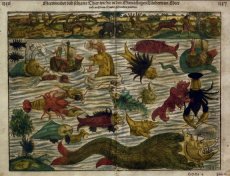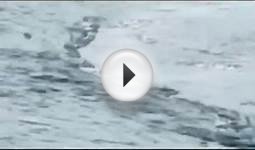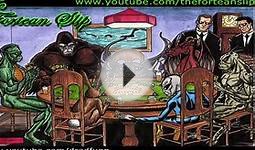Sea Monsters, Loch Ness
 |
| A collection of the weird and mysterious creatures found on Olaus Magnus's 16th-century "Carta marina, " or "map of the sea."
Credit: Public domain |
From the Loch Ness Monster to the Kraken, sea monsters still capture the imagination centuries after medieval cartographers doodled them in the blank spots of their maps. But to Charles Paxton, a researcher at the University of St. Andrews in Scotland, sea monster sightings are more than fish tales.
Paxton is no wild-eyed cryptozoologist who spends his weekends imagining Bigfoot behind every tree. He's a fisheries ecologist and statistician who believes that, with the right methods, anecdotes about mysterious monsters can become scientific data to tell us about human perception and the odd reports that science can't fully explain.
Ahead of the event, Paxton spoke with LiveScience about sea monster sightings, the likelihood of unknown beasts roaming the sea, and why, before you report a sea serpent, you should always make sure you're not looking at a sexually aroused whale.
LiveScience: What drives you to study sea monster sightings?
Paxton: Several reasons. Actually, probably the first is I'm a big kid and I thought it was an interesting set of questions. A more proper scientific reason is that I'm interested in why people believe the things they believe, especially if their beliefs are non-mainstream. And the third reason I got interested is it's important to understand how science tries to relate to anomalous data, data that doesn’t quite fit into our existing paradigms.
LiveScience: You've lumped old sea monster sightings together to study them statistically. What did you find?
Paxton: I was interested in looking at reported distances in sea monster accounts, in seeing whether those reported distances, were they the same as we would expect if the reports were genuinely of random animals popping up around boats. But if you look at the distribution of reported distances of sea monster accounts, they're much closer than you would expect by chance alone.
бетбоом букмекерская контора
You might also like







